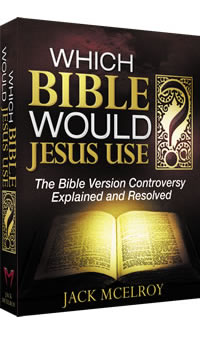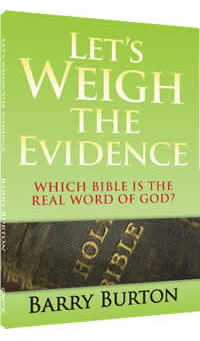American Bible Society No Longer Pope's 'Pest'
"Pests of this sort must be destroyed by all means," said Pope Pius IX in his 1866 encyclical Quanta Cura. He was referring to Bible societies, which he considered dangerous, like socialism and communism.
Barely 30 years later, Pope Leo XIII, in Apostolic Constitution Officiorum ac Munerum, said that any Bible published in the "vernacular" (common language) was "strictly forbidden."
Now, 150 years later, one of those dangerous "pests," the American Bible Society, publishes Bibles that even carry the imprimatur, the official stamp of acceptance from the Roman Catholic Church.
What changed?
The National Catholic Reporter gives us a glimpse of what has happened, reporting that as high as 50 to 60 percent of the American Bible Society staff members are Catholic, including some of the board of directors. Another Catholic staff member works to form links with Catholic publishers, including Loyola Press.
The key to all this? Ecumenical Bibles. Robert Hodgson, the Catholic who heads up the Bible Society's Research Center for Scripture and Media, gives the credit for Rome's acceptance of Bible societies to Eugene Nida, who worked for the Bible Society for half a century, finally heading up the translation department.
Nida is "widely regarded as a pioneer in translation methods and ecumenical outreach," according to NCR. One of his pioneering translation methods is called "dynamic equivalency." This is the method used in all modern Bible translations, and produces a "Bible" which is not an exact translation of the original text, but rather contains the translators' "understanding" of what the author meant to say. According to this principle, it is acceptable to change what the Bible says in order to "adapt" it to a particular culture. Slight wording changes make it easy to "accommodate" different theological views.
Nida had dreamed of Bibles that would be acceptable to both Catholics and Protestants, so he organized a conference in Switzerland in the late 1960s, inviting the Vatican's Congregation for Propagation of the Faith. According to the National Catholic Reporter, "the result was a document on Catholic-Protestant translation ventures," which Nida called "a landmark in ecumenical cooperation." A look at the Bible Society's recent catalog shows that Nida got his wish.
You can still get a King James from them, but you will have to look carefully through their 2000 catalog to find it. You won't have any difficulty finding a Bible with the Apocrypha. It is not difficult to understand why the King James Bible, hated by the popes for centuries, is slowly being replaced by anything else in the Bible Society's catalog.
Rome has not changed its goal, only its method. Open opposition to a common language Bible only fired up the Protestant printing presses. Now, it is much more effective to infiltrate the Bible Societies and maneuver the world into a confusing barrage of "versions" all based on mutilated Roman Catholic manuscripts. Then they can gradually crowd out the one Bible that God has preserved intact, the KJV.
The King James Bible is still hated by Rome because it contains "embarrassing" statements. For example, it prohibits bowing down to idols and serving them (Exodus 20:5).
Catholics prefer a Bible like the ABS Contemporary English Version which says not to bow down and "worship" them. Since bowing, praying and bringing flowers to idols is obviously "serving" them, they are more comfortable with the CEV "worship" since they claim that this is not really worship.
The Word of God is supposed to be sharper than a two-edged sword. When a Bible is produced that everyone can love, even though they are worlds apart in their theology, it can no longer be used effectively to help people trim sin out of their lives.
- See more articles on related topics:
- Bible Versions
Other Articles from May/June 2000:
- He Wanted a Book About the Devil
- You Never Know What God Will Do With His Word
- Four Little Words
- Does God Really Have a Mother?
- A Message From Jack Chick - May 2000
- Chick Mail Bag May 2000
- Parable of the Fishless Fishermen
- Prison Ministry Letters May/June 2000
- Dr. Rivera's 15-Year-Old Claims Verified by Current Events
- Why Do We Need "Thee" and "Thou"?
- Tract Passing Tips - May 2000
More on Bible Versions:
Products of Interest:
-

Which Bible Would Jesus Use?
342 pages
Everyone's got an opinion as to which Bible is best. If Jesus walked into your church, which Bible would He quote from? -

Look What's Missing!
256 pages
For years, publishers have been removing words, and even whole verses, from modern Bibles. What's missing from your Bible? Take a look! -

Why They Changed the Bible
228 pages
See who is behind the gradual changing of modern Bibles. There’s no guessing about what these people believe. They will tell you, in their own words! -

Let's Weigh the Evidence
96 pages
In simple language, this book provides the basics of the Bible version issue, showing why the King James is the only Bible you can trust. Compare the solid history of the King James Bible with the new Bibles that remove Christ’s Virgin Birth and His Second Coming. Learn about Westcott and Hort’s bait-and-switch, missing verses and words, the Living Bible’s tampering, copyright issues, and more!



